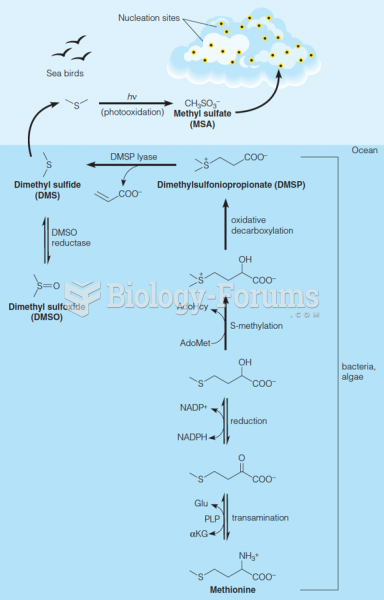This topic contains a solution. Click here to go to the answer
|
|
|
Did you know?
About 3% of all pregnant women will give birth to twins, which is an increase in rate of nearly 60% since the early 1980s.
Did you know?
Computer programs are available that crosscheck a new drug's possible trade name with all other trade names currently available. These programs detect dangerous similarities between names and alert the manufacturer of the drug.
Did you know?
In most climates, 8 to 10 glasses of water per day is recommended for adults. The best indicator for adequate fluid intake is frequent, clear urination.
Did you know?
Long-term mental and physical effects from substance abuse include: paranoia, psychosis, immune deficiencies, and organ damage.
Did you know?
In the United States, an estimated 50 million unnecessary antibiotics are prescribed for viral respiratory infections.
 The violation of mores is a serious matter. In this case, it is serious enough that security at an ...
The violation of mores is a serious matter. In this case, it is serious enough that security at an ...
 Plato (428–347 B.C.E.). Ancient Greek philosopher of extraordinary significance in the history of ...
Plato (428–347 B.C.E.). Ancient Greek philosopher of extraordinary significance in the history of ...





